Kaufman Updates
Permanent link for Convergence | By Zahabia Ahmed-Usmani, Youth Program Manager on March 18, 2025
Ramadan 2025 began with a request.
A friend of mine, who is an elementary Spanish teacher at my daughter’s charter school, asked me for tips on how to support elementary school students who were fasting in observance of the holy month. Ironically, that very day, the Kaufman staff was asked by the University to help guide professors and staff on how to support students observing Ramadan. Upon completing the assignment for my daughter’s school, I realized the Baha’i fast was also starting at the same time as Ramadan and that Lent would start mid-month. With Ramadan falling in this season, we happen to see this overlap, so I expanded my guidance to draw connections to interfaith considerations for all the traditions with special observances during this time, as well.
Having taken care of that business, I sat there for a moment thinking, this was my third child going to this school, now on the verge of completing middle school. I know of at least ten other Muslim students who had attended the same elementary school, and no one had ever asked about accommodating fasting practices so that a child did not need to sit in the lunch room while their friends ate lunch.
So, why now?
Next, my dear non-Muslim friend told me about her freshman son who was fasting the whole month in solidarity with two of his really good Mulsim friends. All of my children have had friends who have fasted with them for all or part of the month. As an interfaith practitioner, I have struggled to understand this type of “fasting with”, wondering if this is cultural appropriation or misguided solidarity because the practice of fasting as a Muslim is rooted in our core beliefs and practices. Each Ramadan season that passes, I see more and more non-Muslims posting about fasting during the month of Ramadan. I have heard Christians say that they fast during Ramadan because they don’t have a “submissive practice to God,” so the Ramadan fast seems to inspire that in them. Take, for example, my friend, a pastor and community leader who is working to stamp out gender-based violence. She was inspired to use prayer beads to offer Christian prayers five times a day with her worldwide community from South Africa to West Michigan during the season of Lent.
Where is this convergence of practices coming from? How do we ultimately find the divine and draw closer to what is holy? Who is to say that my prescription for that is the only correct formula?
As my friend’s son runs track, fasts in a household of non-fasters, and takes that first sip or bite of food at sundown, who am I to say that his experience is not sacred? Especially considering how much he inspires me by eliminating all music during Ramadan as well - something a lot of Muslims cannot even say.
As my social media feed fills up with divisiveness, polarization, and fear, I choose to feel inspired by these moments of convergence.
Earlier today, students from Jenison High School visited the Kaufman Institute offices to learn about interfaith engagement and how to enter sacred sites with humility and understanding before they embarked on visits to Temple Emanuel and Masjid Al Tawheed. These students engaged in a variety of interactive activities, including defining religion, and mapping their own religious, spiritual, or secular identities, and values. Leaving behind their comfort zone, the students challenged themselves to express ideas that they were exploring in a brave space they co-created with their peers at GVSU and co-led by an Interfaith Leadership Scholar who happened to be a student in the group!
Whether it’s self-discipline, spiritual discipline, or simply engaging with a respectful understanding of our neighbors' practices, this embodied work can help us build familiarity with each other’s traditions. As Naw-Ruz (Baha’i New Year) approaches, as well as the last ten days of Ramadan, the most sacred of the month, I am inspired by these youth who enable me to reimagine my tomorrow. They show us glimmers of Kaufman’s mission fulfilled: belonging and equity for persons of all religious, secular, and spiritual identities, with human connection, interfaith understanding, and collective transformation happening through these moments of convergence.
Posted on Permanent link for Convergence | By Zahabia Ahmed-Usmani, Youth Program Manager on March 18, 2025.
Permanent link for The Art of Collaboration | By Liz English, Campus Program Manager on March 18, 2025
In February, I attended the Ripple Conference at Elon University. This student-led and student-oriented interfaith conference was curated around the theme of “the Art of Interfaith,” alluding to both the various media through which interfaith interactions and stories come to be known as well as the creativity required to engage meaningfully with those of different worldviews. Over the course of the weekend, we heard from poets, photographers, calligraphers - all types of artists from different worldview identities, including students and staff from across the country. While I’ve never considered myself a terribly artistic person - stick figures are all I can muster - this conference got me thinking of the less tangible art form that I practice on a regular basis in this work: collaboration.
Of course, not all instances of collaboration are artistic. Whether because of imbalances of power, a lack of reciprocal buy-in, an expedited timeline in which to work, or any other number of extenuating factors, collaboration often devolves into compromise or even competition. Through compromise, perhaps the group arrives at a consensus so that the work can progress in a timely manner, but the decision is ultimately unsatisfying or dismisses key points. At its worst, the guise of collaboration can be used to make a project appear democratic when, ultimately, decisions are being made unilaterally elsewhere.
In contrast, true collaboration is larger than any one decision or meeting. It is relational, not transactional. It is messy. True collaboration requires us to know our own needs long before taking a seat at the table so that we can match cooperation with assertiveness in equal measure. It asks us to hear and hold the stories and values that underlie each opinion. It demands us to create as yet unimagined paths forward while honoring, at times, opposing truths. And as with many other forms of art, true collaboration cannot be rushed.
Next week, Syda Segovia Taylor of Organic Oneness in Chicago will be joining us to speak on campus as our annual Rabbi Sigal Interfaith Leadership Lecturer. Her topic, the inevitability of world peace (yes, even in times of such great disruption and uncertainty), is rooted in her Bahá’í faith and the necessity of authentic collaboration. She will be sharing about her almost 30 years of experience bringing communities together around topics of environmental and racial justice while exploring the tangible steps we can take toward realizing the oneness of humanity. (Everyone is welcome to join us for Syda’s lecture , which will take place Tuesday, March 25, from 4-6 pm on the GVSU Allendale Campus.)
The work that Syda and her team have done to weave together communities in service of humanity for this annual event is masterful. Their King Day of Service, held in Chicago's Bronzeville and Englewood neighborhoods, is a spectacular example of the beauty that true collaboration can yield. Perhaps Syda would not use the term ‘art’ to describe her work in Chicago, but from an external point of view, it is amazingly easy to see the creativity, the heart, the skill, and the time that has gone into the spaces she has created. I invite you to glimpse her artistic process during her visit next week!
Permanent link for Centering Together: A Judgment-Free Space for Reflection | By Rachel Robinson, President of the Interfaith Student Council on February 18, 2025
A reflection of our recent Interfaith Student Council general meeting on Grand Valley State’s campus.
When we planned this event, we hoped that at least four or five people would show up to have honest conversations about the political climate, both on and off campus. We wanted to create a space where students, including ourselves, could safely discuss topics that many of us are eager to discuss.What we didn’t expect was that these conversations would naturally become a part of our group culture. Before our board meetings, we found ourselves informally checking in with each other, talking about what was happening on campus, how we were feeling, and how we were coping. This wasn’t something we initially planned, but it became so essential that I suggested making it the focus of our next gathering: a space to openly ask, How are we doing? How are we coping? The question we decided to discuss was, what has given you strength in moments when your identity, beliefs, or values have been challenged?
From this, a powerful conversation emerged about intentional spaces - how much we need them to thrive, yet how rarely we make them a priority. So many of us crave community and connection, yet follow-through is a challenge. We say, “I’d love to come!” but then don’t show up. Why is that? And I am not perfect here either, I’m guilty of it too. I tell my friends I want to spend time with them, but unless I intentionally put something on the calendar, it often doesn’t happen. Worse, if plans are too far in the future, distractions arise, and the moment passes. But we need these brave spaces. If we want to make a real difference in how we are feeling, it doesn’t have to be through grand gestures. It can be a small gathering of just four people. As one of our board members put it, “The proof that people are interested is us in the room. If we are here, that means there IS an interest in it.”
So how do we show up for ourselves and our communities? Through small acts. They create ripple effects, and we never know how far those ripples might reach. Even though only one person outside our organization attended, that one conversation could inspire someone to write about it, to share it, to bring others into the dialogue next time.
Lately, there has been much controversy stirring and concern for communities both on and off Grand Valley’s campus. Some are outwardly expressing their concerns, but others are not. One of our board members said, “Our communities are quiet, and that is scary.” We need to be willing to have the hard conversations. As Brené Brown cleverly puts it, we need to be able to rumble with it: “A rumble is a discussion, conversation, or meeting defined by a commitment to lean into vulnerability, to stay curious and generous, to stick with the messy middle of problem identification and solving, to take a break and circle back when necessary, and to be fearless in owning our parts.” Silence isn’t the answer, community is. Community gives us strength to bear the bad things and find strength within each other. A member of our group answered the question about what gives him strength by saying, “Things like this! Unfortunately, spaces where people can speak their minds without fear of ridicule or judgment are rare. And we need them.” He reminded us that “Diversity equals stability. Nature teaches us this; ecosystems thrive when they are diverse. If we can recognize that same principle in our communities, we will be stronger together.” As Valerie Kaur puts it, “See others as a part of ourselves that we do not yet know.”
The morning after our event, I listened to a podcast featuring Simon Sinek, a leadership expert and author, interviewing Jacob Collier, a musician. They discussed how creation and destruction are not always mutually exclusive. This resonated with me. Maybe the ways we’ve been connecting, through Zoom, social media, and digital spaces work, but maybe we also need to create new ways to be present with each other. In times like these, spaces for deep conversation are life-giving. If we’re willing to put ourselves out there, to be intentional, to get creative in how we gather and engage, then we’ll find not only connection but also inspiration. Because small acts have ripple effects. And maybe, just maybe, those ripples will help us build the world we so desperately need. We continue to plan events like this on campus every other Tuesday from 7:00-9:00p. If you would like to join us in these intentional conversations and brave spaces, please send us an email and we can send you updates on future events.
Permanent link for Interfaith Table Talks Come to GVSU | Liz English, Campus Program Manager, Kaufman on January 21, 2025
It wasn’t all that long ago that our options for gathering together were either virtual or not at all. During the shutdown, seeing friends and family was only possible through a screen, and thank goodness for that. In the interest of accessibility, after the shutdown was over, hybrid or fully virtual spaces have stayed incredibly popular. But I think we all know of the magic that dwells in the spaces where we gather face to face. For all its convenience, a virtual meeting room simply cannot replicate many of the unseen connections that arise in-person - whether we are in the depths of conversation or through body language and small talk in brief instances of passing by.
We also know that these spaces can be intimidating. When we’re sitting in a room together, we no longer have the security blanket of being able to turn off our camera and disconnect when conversation gets difficult, when someone says something that causes our heart rate to speed up or our shoulders to rise in tension, or in those moments when the mind drifts to our to-do lists which we can conveniently check on a separate screen. Being physically together in a space requires presence in more ways than one, which is not always easy. It is, also, where we have seen profound relationships form and be sustained.
For years before the pandemic, and on several occasions since, Kaufman has partnered with the Dominican Center Marywood to curate such a space of in-person relationship building called “Interfaith Table Talks.” Since their inception in 2012, the Table Talks have always been spaces dependent upon the collective wisdom, collaboration, and trust built between the folks in the room, and the room has remained a physical space for a number of reasons. The evening centers around a shared meal, another type of magic not replicable via screen. Barriers are broken down as panelists model the conversation as co-learners, not experts. The atmosphere is often vulnerable and brave. They have quite frankly become some of my favorite spaces within which I can lean into challenging conversations around my own worldview.
This semester, we will host what is hopefully the first of many Interfaith Table Talks on campus, and I’m thrilled to be bringing this type of gathering to GVSU. The inaugural topic: getting to know your religious, secular, or spiritual neighbor. Through deep listening and dialogue, we will highlight both similarities and differences of our experiences across worldviews, and to get Lakers talking about this crucial and often underexplored aspect of identity while breaking bread together. We will put down the screens and simply be together, embracing the challenges of vulnerability and hopefully the personal and collective growth that comes with it as we get to know our neighbors.
Due to extreme weather conditions and the GVSU campus moving to
remote status for Tuesday and Wednesday, the campus Table Talk which
was originally scheduled for this evening has been postponed for a
later date.
Posted by Liz English on Permanent link for Interfaith Table Talks Come to GVSU | Liz English, Campus Program Manager, Kaufman on January 21, 2025.
Permanent link for Kaufman On Campus: A Semester in Review, and Looking Forward | By Liz English, Campus Program Manager on December 17, 2024
I remember the whirlwind of my first month at the Kaufman Interfaith Institute. Suddenly, what felt like minutes after my final interview (though in retrospect it must have been at least a few days later), I found myself helping to organize an interfaith concert and dialogue with two international music groups, each traveling in from different countries and each with riders to fulfill. There I was with my degrees in Religious Studies, my new employee ID, and not a single clue where to begin renting instruments like a doduk or kopuz. We were off to the races – interfaith in action! – and I was still unsure where I should park.
This December marks the end of two and a half semesters that I’ve been at GVSU with Kaufman, and I still have not gotten used to the pace at which a semester flies by. All of a sudden, here I am reflecting upon what we’ve accomplished over the past three and a half months when it feels like yesterday that I was meeting students and handing out swag at Campus Life Night before the first day of classes.
My priority this past semester was the creation of various spaces of deep listening and authentic ‘being’. Even in my short time at the Institute, I have seen that Kaufman’s programming is at its best and truly thrives when it is deeply and authentically rooted in the needs of the community or communities which it hopes to engage – and I could not hope to create spaces of meaningful conversation and exploration on campus without knowing what those needs are. Low stakes meet-and-greet spaces of connection like the Multifaith Mixer saw great success and interest, as did more intimate spaces such as our weekly Listening Spot where students could share about their days – good, bad, or somewhere in between – in a judgment-free zone. The Interfaith Student Council made its debut on campus this semester, as well, and the enthusiasm for interfaith conversations and connections I’ve seen from these students brings me joy and great hope for future student-led initiatives both on campus and out in the wider community.
The desire for meaningful connection is strong; creating spaces and experiences in which those connections can and do flourish is something with which we continue to experiment. Our Winter 2025 campus programming is centered on this goal.
In January, we will be hosting a “Know Your Neighbor” panel discussion and dinner for the GV community, during which several friends of the Kaufman Institute in their 20s and 30s will explore the importance of interfaith friendships and share about their own religious, spiritual, or secular identities and experiences. Utilizing a model that has shown great success in the community, we will encourage attendees to dig deep into their own stories, lean into intentional and vulnerable conversation with others around worldview, and explore the similarities and differences of our lived experiences while breaking bread together.
Our February event comes out of a growing partnership with Wm. B. Eerdmans Publishing Co. which led to a great event with Kristin Kobes Du Mez and David Gushee this past March. Next year, three authors – Cait West, Dr. Sara Moslener, and Dawn Burns – will lead us through a conversation on surviving the harmful effects of religious trauma and purity culture by utilizing writing to process and heal. These (im)Pure Michigan authors will shape the spaces by sharing from their works of fiction, memoir, and academic research in two sessions, one on the Allendale Campus intended for Lakers and one in Grand Rapids open to the public. More and more, we have seen the need for trauma-informed spaces within which students are actively supported as they experience the stories of others and delve into their own; the “Writing Religious Wrongs” sessions will do just that.
Finally, in March, we are thrilled to host Syda Segovia Taylor as this year’s Rabbi Phillip Sigal Interfaith Leadership Lecturer. Syda is the founder and executive director of Organic Oneness, a nonprofit organization in Chicago which centers its mission around racial and environmental justice. She is a member of the Bahá’í community and camps her approach to social justice in the Bahá’í writings on the fundamental oneness of humankind. The planning process for the Interfaith Leadership Lecture has already yielded moments of powerful alignment between Syda’s work and that of the Kaufman Interfaith Institute. We look forward to ushering in the Spring season with her!
Next semester will undoubtedly feel like a whirlwind, just like that first month – in many ways, it already does – but I am grateful for this moment to pause, reflect, and find myself in great anticipation about what is to come.
Posted by Liz English on Permanent link for Kaufman On Campus: A Semester in Review, and Looking Forward | By Liz English, Campus Program Manager on December 17, 2024.
Permanent link for Interfaith & Interwoven is Looking for New Members on December 17, 2024
Do you enjoy knitting/crocheting and chatting with people of different worldviews than your own? Would you like to knit/crochet for children in a high-needs school while having life-giving conversations? If so, Interfaith and Interwoven is the group for YOU!
Interfaith & Interwoven: Knitting for Peace, Justice and Healing began as a project of the 2015 Year of Interfaith Service through the Kaufman Interfaith Institute at GVSU. While gathering on a weekly basis to craft hand-made goods to donate to those in need and dialogue about our faith traditions, we learn a lot about knitting and each other. Through our weekly Zoom meetings of knitting together, we are helping to put diverse people in relationship to one another.
The beauty of meeting on Zoom is that you can meet with the group from the comfort of your home or your travels (if you're a snowbird or a person who is on the go). And it allows our group to meet even though its members are dispersed around the Midwest. One might think that being on a virtual platform has impeded the intimacy of our conversations or relationships but it's actually quite the opposite. We have been grateful that our group has been able to discuss topics pertaining to mental health, aging and stages of life, death and grieving, end of life decisions, teen hormones and angst, diversity and justice issues, cross cultural experiences and much more. The current group is Buddhist, Jewish, Muslim, and Christian.
If this group sounds interesting to you and you think that others in your faith community would like to join, please share the attached flier. Sign up for this group by filling out this form.
FAQ’s
Who: Persons of all ages (and handcraft abilities) from all faith and non-faith communities. People of all worldviews are welcome to join.
Why: To build friendships and dialogue about our traditions while our hands are engaged in creating items for ourselves, our families, and/or charitable organizations. We are currently knitting hats, scarves & mittens for Godfrey Elementary School in Wyoming, MI.
When: Every Wednesday morning from 10:00 - 11:30 am from September to May.
Where: Even though COVID restrictions have been relaxed, we are continuing to meet by ZOOM as our group has expanded beyond the Greater Grand Rapids area. If you would like to be on the email list to receive the Zoom link, please visit https://www.gvsu.edu/interfaith/interfaith-and-interwoven-61.htm to sign up to receive the Link by email.
Yarn Supply & Garment Drop-Off: If you need yarn, we have a "stash" of donated yarn which may be picked up by appointment at the Kaufman Interfaith Institute on the downtown medical campus of GVSU.
So, please join us for this weekly relationship building experience! You won’t regret it!
Posted on Permanent link for Interfaith & Interwoven is Looking for New Members on December 17, 2024.
Permanent link for Area High School Groups: You are Invited!!! | By Zahabia Ahmed-Usmani, Youth Program Manager on October 15, 2024
Why do we travel? Even traveling two hours away to escape to a neighboring city can get us out of the mundane, awaken our senses, heightens our emotions, invigorate our mind and open us up to the possibility of something new. For students, field trips serve this purpose, to unfurl our horizons.
A field trip to the Kaufman Interfaith Institute will take your students out of the humdrum of the daily school environment. Kaufman’s home, located on GVSU’s downtown Health Science Campus, is just far away enough, just academic enough, just curated enough to transport students into a headspace where they feel safe and ready to lean into deep learning about themselves and others. Our welcoming staff work hard to create an environment that caters to the needs of teens to create safety and comfort.
Jenison High School students recently visited the Kaufman Interfaith Institute. Twenty freshman and sophomore students signed up to voluntarily spend the day building interfaith understanding and belonging with us. Kaufman is grateful to have a space that is malleable and effective for groups up to forty people. With a group size of twenty students we were able to provide soft seating in an intimate circle for our presentation portion and still have plenty of space for hands-on activities in the room.
Our short two hours together covered a lot of ground! Beyond sharing the important history of Kaufman’s founding and the critical nature of our work during these polarized times, we talked about our youth programming and the importance of youth leadership. The crux of our time together was spent exploring individual identity because knowing oneself is crucial to knowing the other. Then we explored the idea of cultural humility, how it’s defined and why it’s an important posture as we engage in the world.
While learning via presentations is interesting, embodied hands-on learning engages different pathways in the brain. In our first activity we engaged with our values. It allowed for students to discuss their understanding of different values, what those values mean to them, why they are important and how they impact their decision making. In our second activity we used Play-Doh to model our “Ideal Communities.” The discussion afterwards centered on topics of leadership, collaboration, resources, barriers, and profound direct connections to issues in their school community. Just as students were digging into the way in which they, as leaders, could impact their school it was time to leave. The Jenison group was able to continue their conversation back at school and debrief their time with us. The overwhelming feedback was that they wanted more time together and felt empowered by the importance of their role as leaders on campus to build belonging. They want to stay connected with Kaufman via the Scholars and with staff because of the connections we built in our short time together. They were honored to be treated with dignity and respect as young adults and not children in our space.
As Kaufman grows its youth programming we are learning from these experiences. We often do trainings for community organizations and internal departments at GVSU. We are learning that we can be a resource to schools who are looking for a field trip experience on a variety of topics related to interfaith understanding, identity, youth leadership and belonging (to name a few). We encourage you to reach out to Zahabia Ahmed-Usmani if you would like to plan a visit!
Permanent link for Drawing from Ancestral Wisdom: On Valarie Kaur's Visit to GVSU | By Liz English, Campus Program Manager on October 14, 2024
We slipped our shoes off to feel the ground beneath our feet, with the waters of the Grand River flowing nearby. Breathing deeply, we closed our eyes, and were invited to imagine an ancestor, one that represents courage, standing behind us, watching over us, encouraging us forward. Next, she asked us to envision a child, one from our lives who brings us joy, standing in front of us, smiling up at us.
At the beginning of both of her visits to GVSU, Valarie Kaur started off with an exercise grounding us all in both time and space, one which is also used to ground her newest book, Sage Warrior.
“You are the link between past and future,” she said. “With the earth under you, and waters around you, with ancestors behind you, and the children of the future before you - May you find the wisdom you need to be brave with your life.”
Because bravery is what is needed right now. Especially from people like me.
In her first book, See No Stranger, Valarie provided tangible tools and strategies to encourage those brave steps as we turn towards others, even our opponents, while accruing an essential self-awareness - the sweet labor of revolutionary love, of breathing and pushing. At our event last week, and in Sage Warrior, she invited us to remember how our ancestors came together in community through music, storytelling, poetry, and song, leaving no one behind, even in times of the most dire crises. Drawing from her Sikh tradition, Valarie painted a picture of pivotal moments in the lives and stories of several of the founding Gurus as they faced seemingly unprecedented challenges of their own.
I found that, in practice, drawing upon the wisdom and strength of my ancestors was not a straight-forward task. I remember sitting in that room, eyes closed, struggling to think of an ancestor standing at my back. While I have great pride for my immediate family, my grandparents, even the great-grandparents about whom I’ve heard stories or even vaguely remember from my youngest years, I could not focus on a particularly courageous figure. While the grinning, goofy faces of my nephews were as clear as day in front of me, my past was blurry. I heard Valarie emphasize the kindredness of humanity, and that “all ancestors are available when summoned with integrity.” And yet I felt myself reaching back through a haze of colonial guilt.
But my role as the link between past and future is not to become paralyzed with shame. That does not help my nephews. Nor is it to ignore my colonial history. That does not honor the voices of other ancestors long silenced. It is to wield the gifts, the lessons, the mistakes, the privilege of my past to create a better future for my nephews and for all of the children envisioned in that room. The grounding exercise came to resonate with me all the more as I wrestled with this tension. I will be their ancestor someday. How can I use my time well and make them proud?
From her early days as a civil rights activist, Valarie’s vision of impacting the world has been rooted in nonviolence. At the same time, the Sikh tradition is one of warrior-sages, taking to arms to defend the rights of all people in pursuit of Oneness. She in turn uses the military language as a metaphor to describe our roles, our strengths, and our ‘weapons’ in the fight for social justice - what is my sword? What can I use to fight on behalf of others - my pen, my voice, my work, my resources? Maybe my position of privilege allows me to more easily and more safely enter into conversations and listen to the pain and the rage of those who I would consider my opponents. And what is my shield? How can I protect myself, who can I surround myself with to support me when times get hard? Because this is work that we must do in community, and we must take care of ourselves.
The verbiage we so often hear on the news or social media pushes beyond the vocabulary of uncertainty to call these ‘unprecedented’ or even ‘apocalyptic’ times. Divisiveness seems to be at an all time high, with the upcoming election serving as a lightning rod for the polarization that is rampant in the air. How do we step into this season intent to know our neighbors and to come together in community while bludgeons are sailing overhead and bunkers are being reinforced? It requires bravery to even step out of your door in times like this, let alone to intentionally extend an invitation of curiosity and care across deep, entrenched lines of difference. It is a tall order to venture further into this unfamiliar, uncomfortable, even potentially unsafe territory. But how do we find the courage to do so? What I have learned from Valarie is that we all have a part to play - our own swords and shields - and that we must move forward together, with the strength of our ancestors behind us and the future of our children before us.
Posted by Liz English on Permanent link for Drawing from Ancestral Wisdom: On Valarie Kaur's Visit to GVSU | By Liz English, Campus Program Manager on October 14, 2024.
Permanent link for Building Trust and Introducing 'Interfaith' on Campus | By Liz English, Campus Program Manager on September 17, 2024
Last week, Kaufman held its kick-off Multifaith Mixer on a beautiful if unseasonably warm September afternoon. Though we intentionally distanced ourselves from the chaos of Welcome Week by waiting until the third week of classes for our event, the campus was (and is) still very much a-buzz with beginning-of-the-year energy. We set up our activity stations, got the food truck situated, laid out the floor labyrinth and the yard games, and we were ready to go!
In preparing for this event, I had a very simple goal: to provide a space for students to just be together. While I wanted resources to be available to those who were curious about Kaufman, first and foremost, I wanted students to experience what we mean by interfaith.
The stigma surrounding ‘interfaith’ is palpable on campus and results in many students being hesitant, uninterested, or downright put off by the presence of an interfaith organization. Perhaps that is because the students who don’t identify with a particular ‘faith’ may not see their interests represented in an interfaith organization, or because students who are grounded in a particular tradition are weary that interfaith may be intended to lead them away or convert them from what they know, or maybe there is just a general unease around the topic of ‘religion’ being so predominantly discussed in public. I cannot say for sure.
What I have observed is the physical release of tension, the relaxing of the shoulders that follows my elevator-pitch description of how we at Kaufman understand and live into interfaith. Once it becomes clear that we are inviting folks to bring their whole selves into our spaces, to explore where their values come from whether that is from a religious source or otherwise, to share their stories with others, and to learn how diversity in experience and belief can be a boon to collective action and not a detriment… Once this vision takes shape, the barriers begin to come down.
The Multifaith Mixer intentionally allowed students to opt in as they felt comfortable, to grab a meal and get to know each other or to take it with them on their way, to settle in to create a friendship bracelet, play a game, or pick up a conversation card or take some colored pencils home for later. While we view interfaith as necessarily interactive, having opt-in spaces to simply introduce ourselves and to begin to build trust are just as important.
I am confident that at least a handful of the 75+ students who came by last week will feel just a little bit more comfortable joining in some of our future campus experiences, whether that means joining us for our sacred site visits, or attending lectures like our upcoming Faith Over Division conversation, or stopping by the first meeting of the Interfaith Student Council. Hopefully their curiosity has been sufficiently piqued so that when they see our Kaufman tablecloth or our t-shirts or any of our staff around campus, they’ll at least come say hello.
Permanent link for Kaufman's Youth Programming Embodies Flexibility While Invigoratingly Inspiring Our Community | By Zahabia Ahmed-Usmani, Youth Program Manager on September 17, 2024
Working at a nonprofit consists of constant ups and downs, so we have learned to embrace change. Timing things perfectly, or planning events with just the right mix of educational content and interactive experience while being mindful of your audience are just a few of the considerations Kaufman keeps top of mind when event planning. With youth programming the list is even more complex. I think we all know how hard it is to motivate teenagers to do anything! So, if I were to use one word to describe youth programming it would be “flexibility.” And then when we get them in the room- my second word would be “invigorating!” Kaufman’s youth programming has embodied flexibility while invigoratingly inspiring our community!
Kaufman’s youth programming consists of two main programs. The Summer Interfaith Service Day Camp and a co-curricular Interfaith Leadership Scholars Program. In June we planned our Summer Interfaith Day Camp for middle and High School students. However, due to a number of school districts not taking their snow days and ending school early, and our funder obligations which forced us to push back the week we held our camp, our registrations were extremely low. While we canceled our Day Camp we incorporated our youth voices into our June Interfaith Convening - Critical Hope: Envisioning the Future of Interfaith. State-wide Interfaith leaders heard from Kaufman Scholars, GVSU student interns, and Michigan Youth Faith Advisory Council Members on an Youth Interfaith Panel. Youth were specifically asked about fostering inclusive spaces, creating awareness of blind spots in interfaith relationships, and where they saw potential in the interfaith movement. The audience left with multiple takeaways including better understanding of neurodivergent populations, accessibility considerations in spaces, inclusion of traditions beyond the Abrahamic, inclusion of younger age populations on committees and boards, and much more.
Most recently, the Kaufman Institute launched the 6th year of our Interfaith Leadership Scholars Program. This year we have 15 students from west Michigan representing the Agnostic, Atheist, Christian, Jewish, and Sikh traditions. At our first meeting on Sunday, September 15, Scholars were able to meet one another and build trust via team building activities facilitated by Adventure Point. Each of the students in this program comes into the program with a different motivation. Some have been harmed in religious spaces or found them unwelcoming but enjoyed the idea of community they felt in them and wanted a space to do something productive with other youth. Some want a platform to gain leadership skills and network with others. Some are looking to build cross-cultural understanding and geek out on learning about different religions and worldviews. But the core purpose of the group is leadership development and interfaith cooperation with the ultimate goal that the students will execute a community impact project of their choosing. As we begin the year, establishing trust, building our community environment, and learning about our strengths and skills will be our focus. While we have about ten returning Scholars and five new Scholars, based on our meeting over the weekend I can tell that we have started to establish roots that will grow deeper over the next few meetings. One of my favorite moments was when one of the new students asked his small group, “So what languages does everyone speak?” Totally normal west Michigan question right? In the upcoming months I look forward to updating you on some of the leadership curriculum and experiences we have as a group and how the youth continue to invigorate Kaufman onward into the future.












[1734457184].jpg)
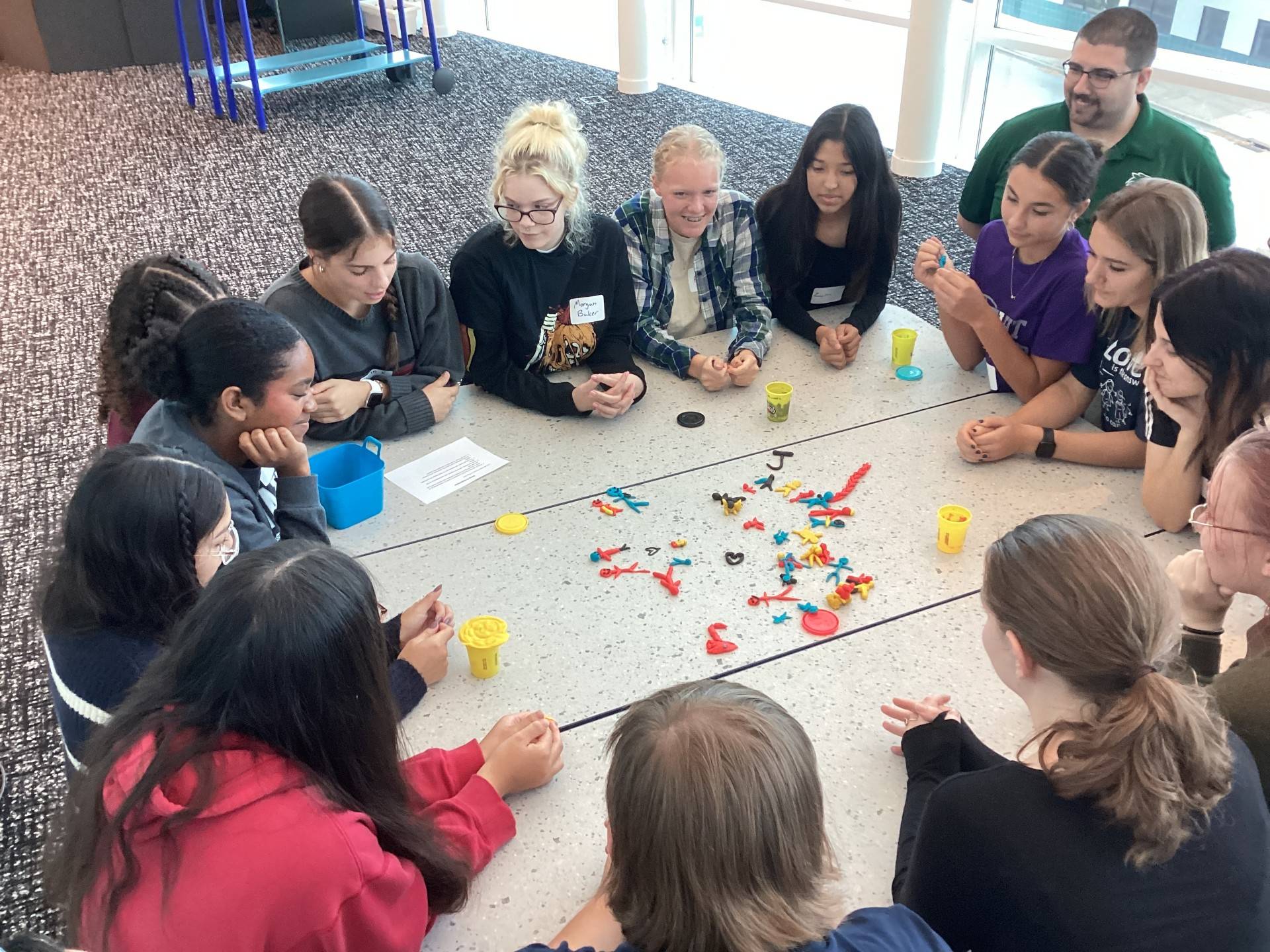
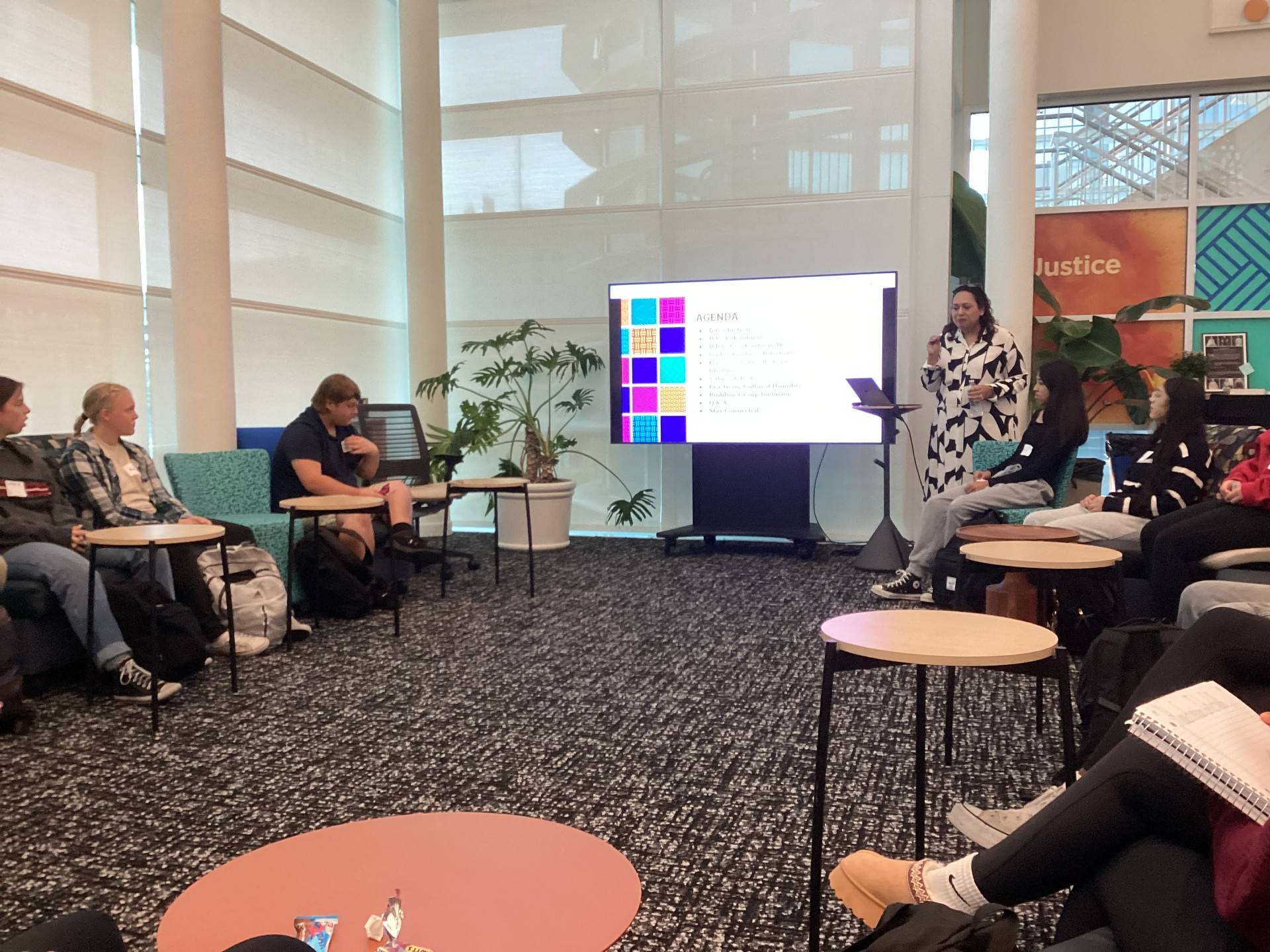
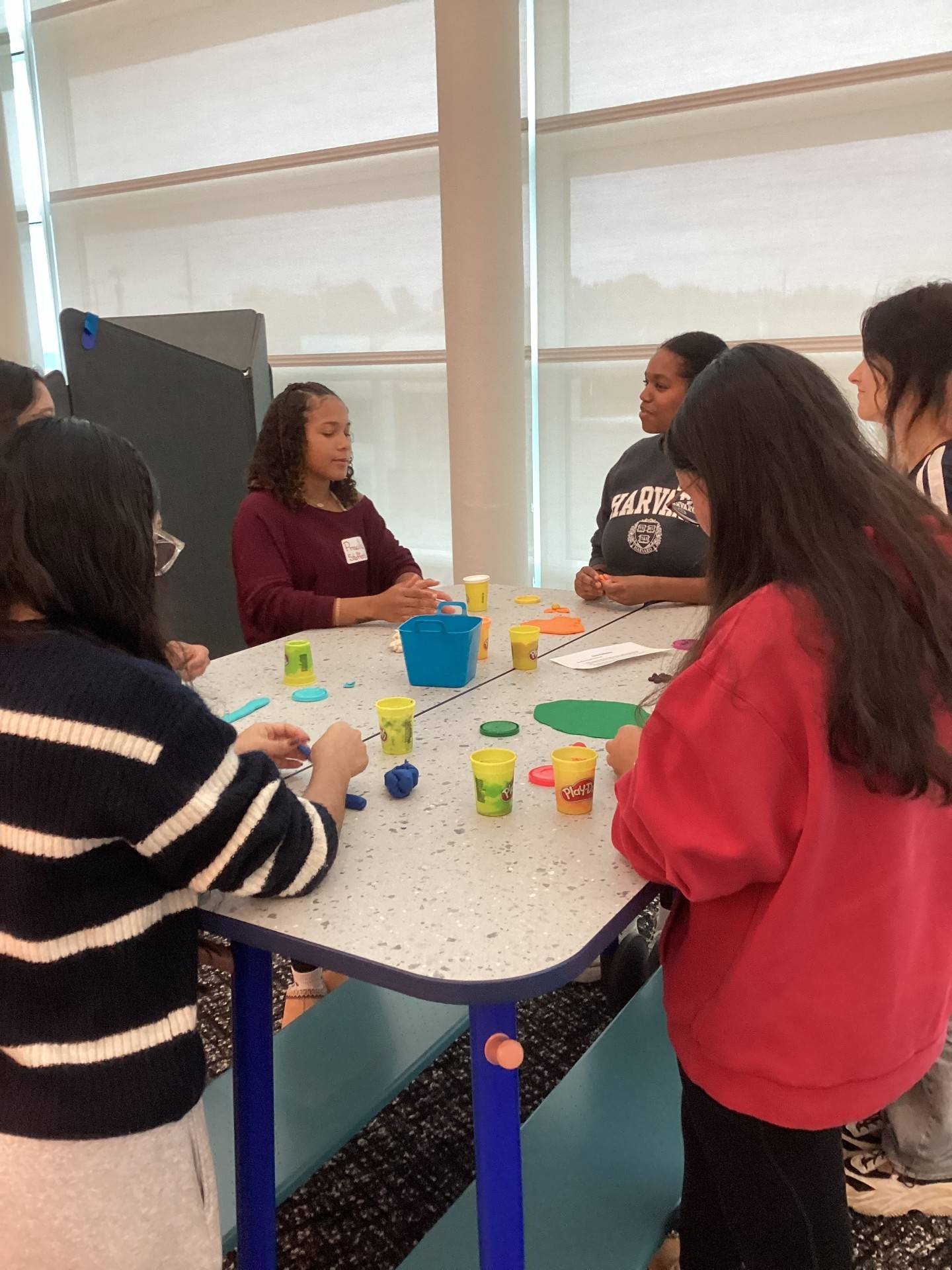
[1728935559].jpg)
[1728935678].jpg)
[1728935801].jpg)
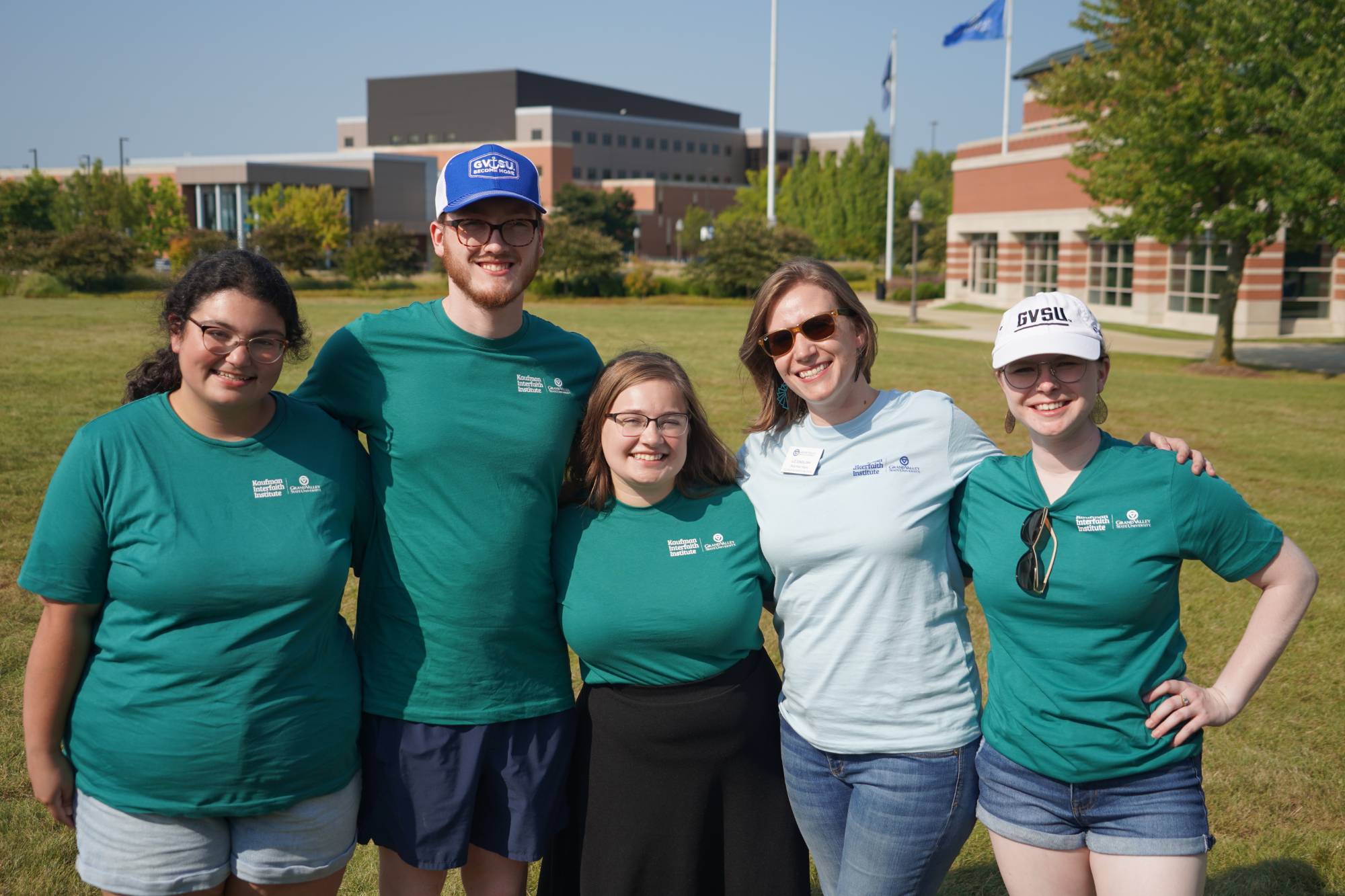
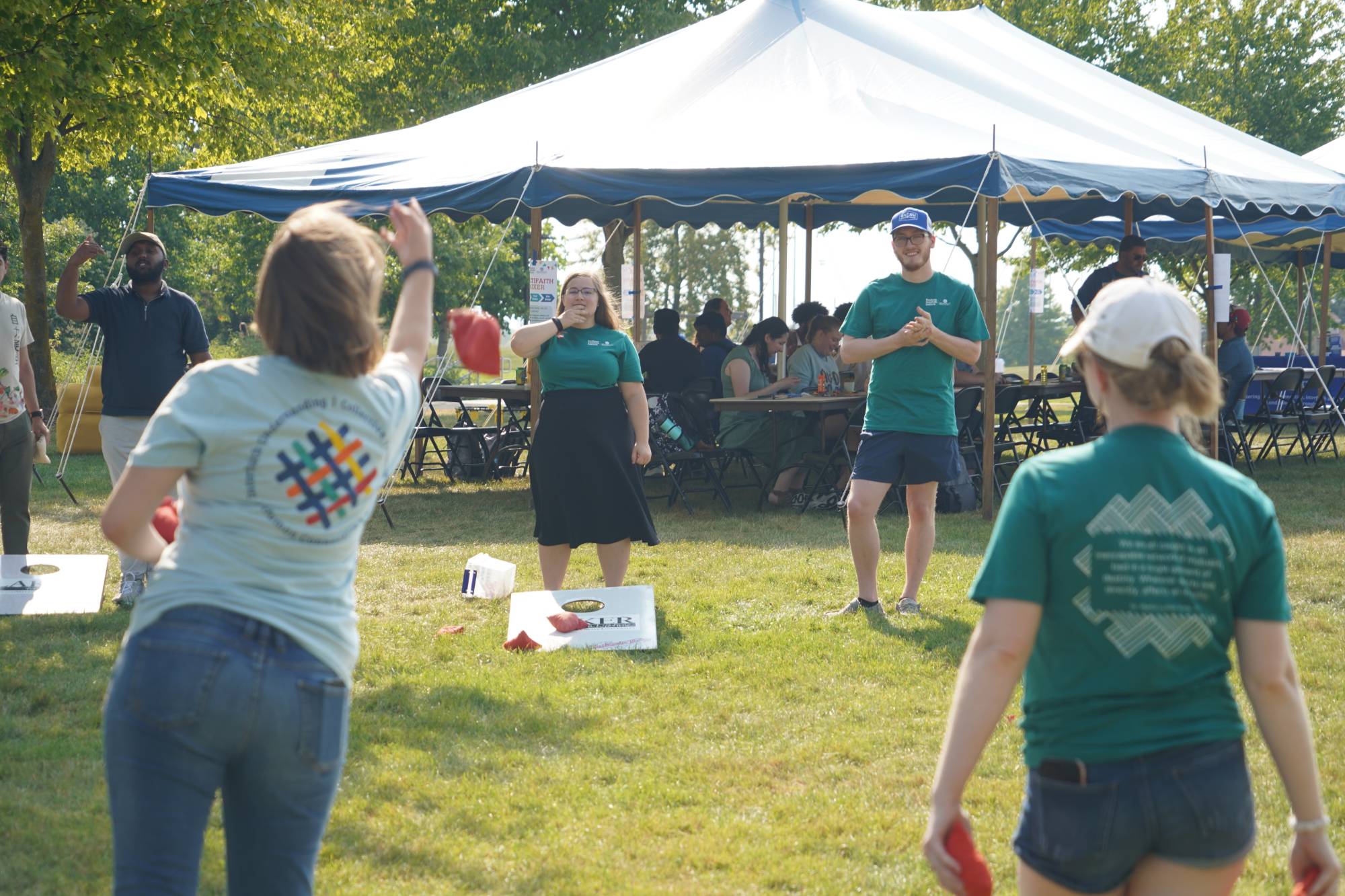
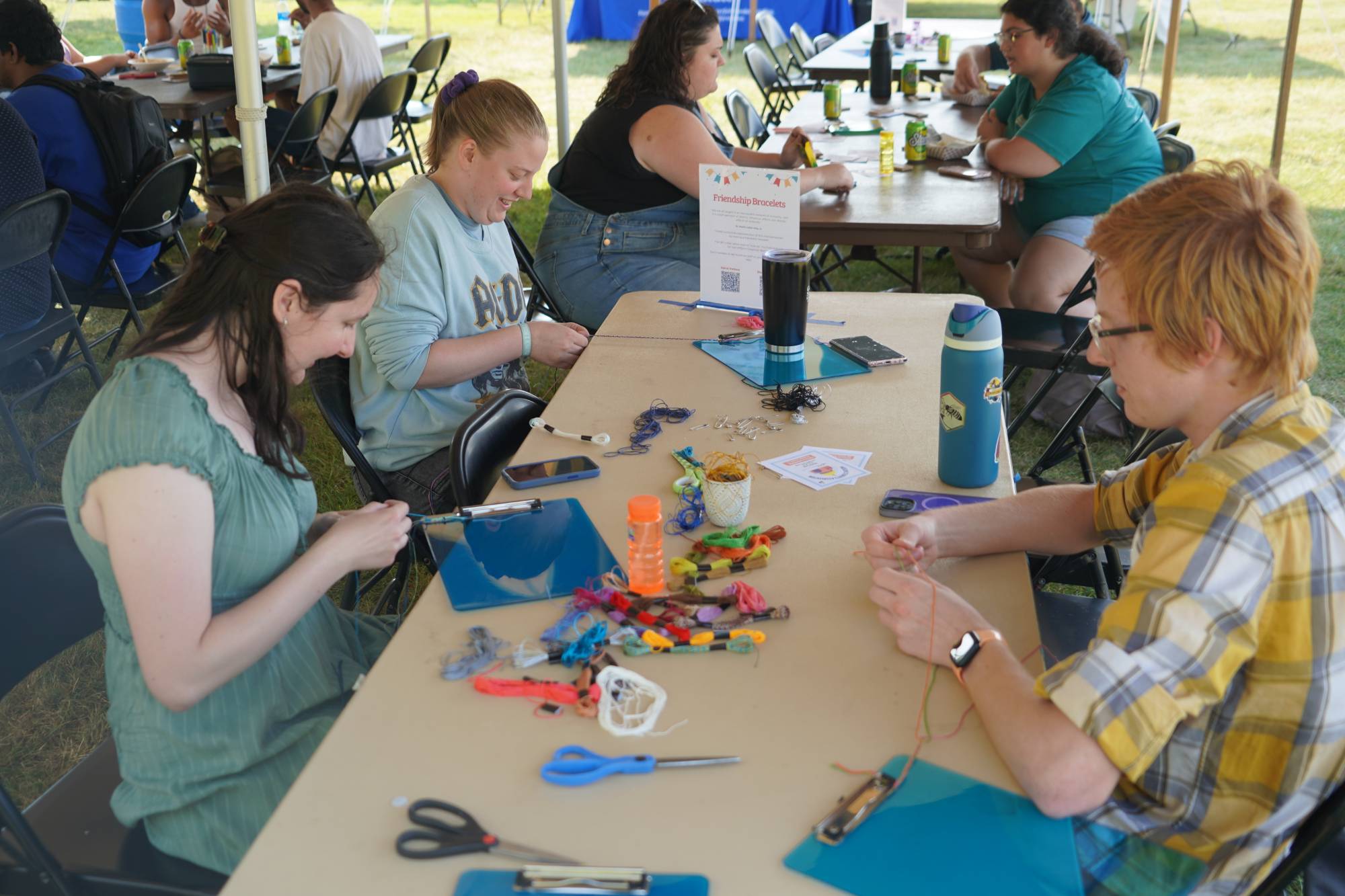
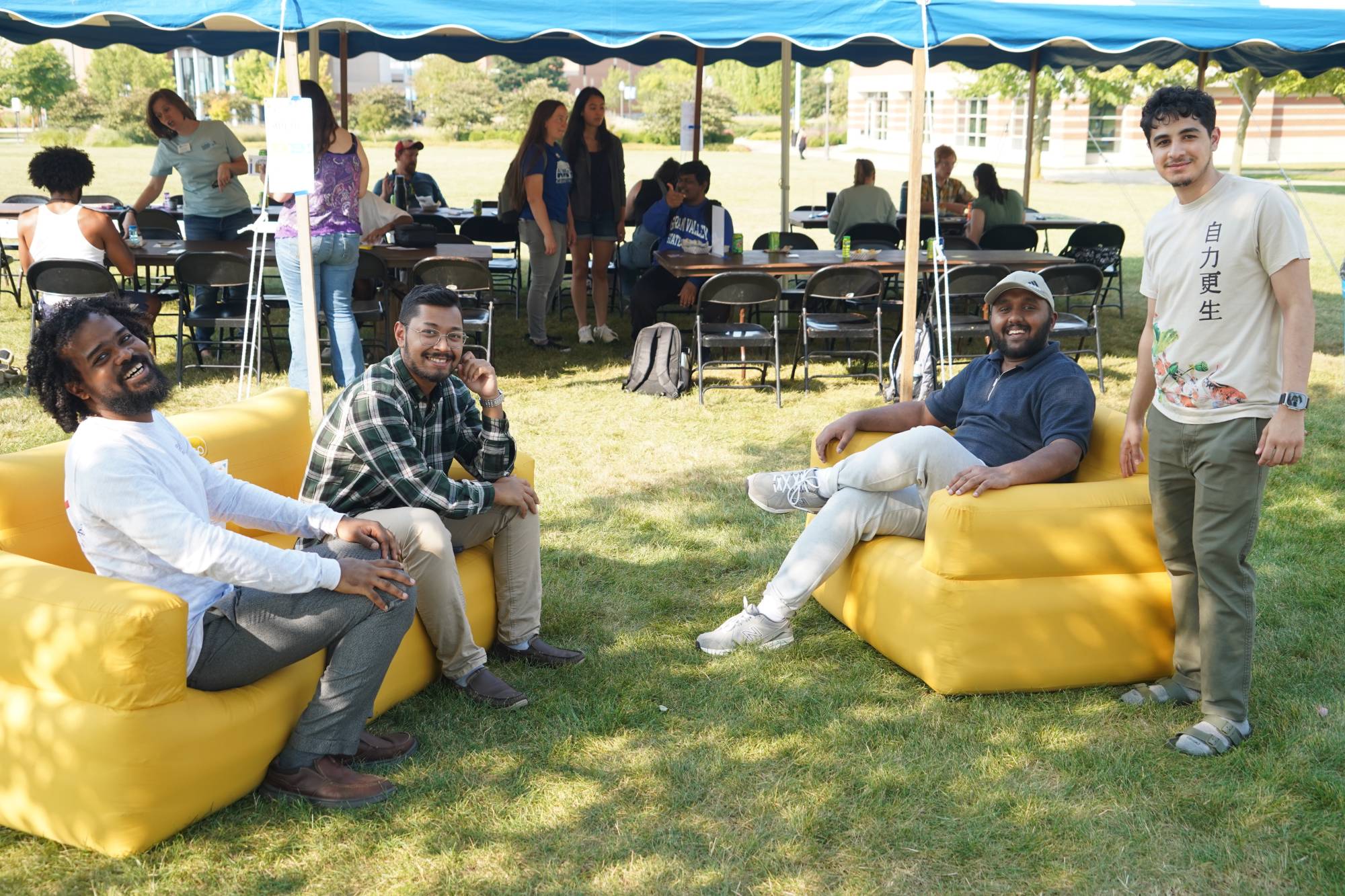
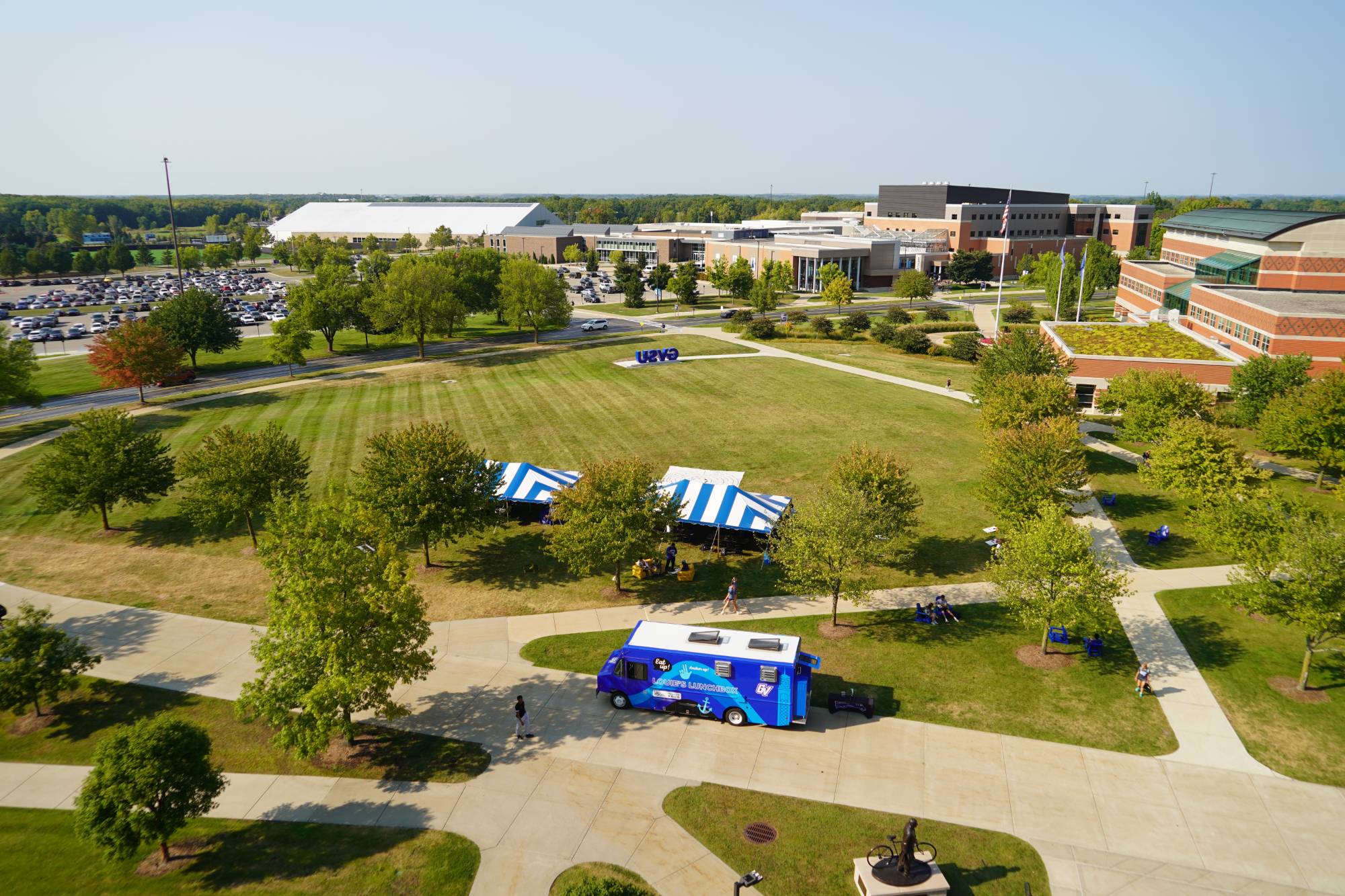
[1726582001].jpg)
[1726582001].jpg)
[1726582241].jpg)